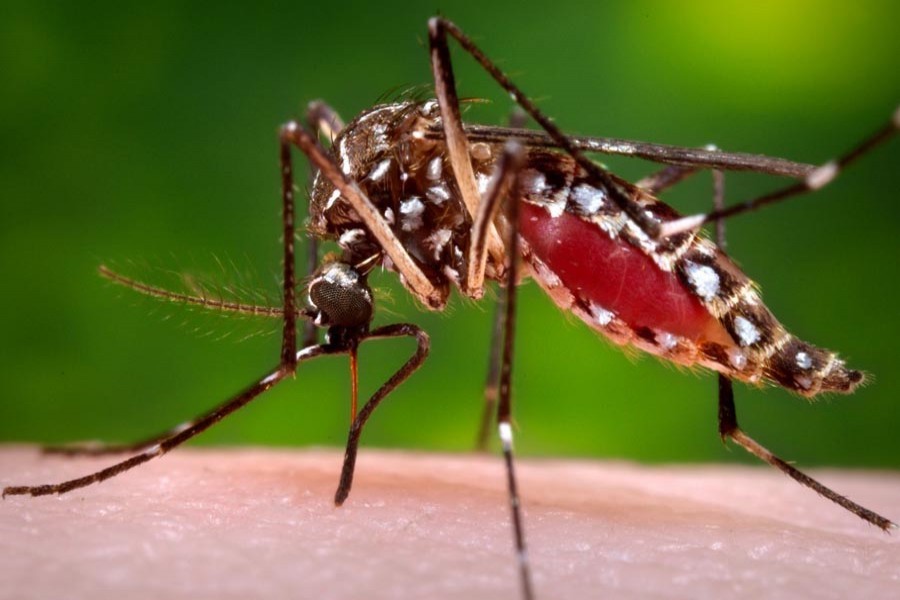
Published :
Updated :

Prevalence of dengue fever in the capital and elsewhere appears to be a common feature at the advent of the monsoon but there is hardly any effort on the part of the authorities to fight its outbreak. Reports have it that the mosquito-borne disease has lately taken a serious turn in many parts of the country, including Dhaka. In Dhaka alone, there are reports of hundreds of people suffering dengue attack recently, a majority of whom were hospitalised. A local daily quoting sources of the DG Health Services (DGHS) has described the situation as alarming. Survey conducted in various locations under the Dhaka South zone by a specialised wing of the DGHS found high prevalence of Aedes mosquitoes, the carriers of dengue. The survey found high level of larvae of Aedes in water collected from abandoned automobile tyres, plastic drums, buckets, open tanks and flower tubs. The findings of the survey suggest that the level of prevalence of Aedes larvae is quite high and may wreck havoc soon if actions to address the situation are not in place. Aedes mosquito, as experts say, feeds in daytime, and its peak biting period is two hours after sunrise and two hours before dusk. This, no doubt, is a good piece of information to take precaution and stay away from the disease.
Around a decade back when dengue suddenly took its heavy toll all over the country, affected people suffered mostly because of the lack of medical facilities in both government-run and private hospitals and clinics. Over the years, although the facilities are more or less available, casualties do take place. Deaths occur more in small towns and rural areas where awareness level is believed to be poor and anti-dengue campaign is not adequate to warn people about the killing disease. Children, particularly minors, are easy victims of dengue attack and also succumb to the ailment more than the adults, according to experts.
In urban locations such as Dhaka, presently there is hardly any awareness campaign on, nor is there any noticeable mosquito eradication drive. This no doubt is undesirable. A few deaths have already been recorded in the capital, and with the monsoon around the corner, chances of the disease taking an endemic proportion do not seem unlikely. It must not be forgotten that it is none other than the DGHS which has found the situation alarming following the findings of a field survey.
Is it for the authorities to sit still and wait for more authentic information that the alarm is real, that a dengue onslaught is on its way? The two city corporations have, so far, remained indifferent. There is no sign of activities through their respective municipal wards to either caution the citizens and suggest necessary measures nor is there any ant-mosquito drive. A conscious citizen can only urge for quick action. Delay may cost too dearly.


 For all latest news, follow The Financial Express Google News channel.
For all latest news, follow The Financial Express Google News channel.